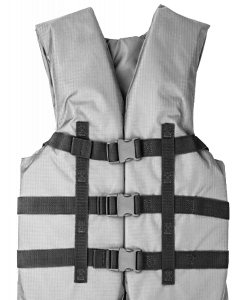Q&A With Fortify Rights
by Daniel King
Fortify Rights is a human rights organization that investigates and documents abuses in Southeast Asia and supports human rights defenders on the ground. Together, Doha Debates and Fortify Rights are training a group of Rohingya refugees — forced from their homes in Myanmar to neighboring Bangladesh by the military’s campaign of genocide — to document their lives through photos and videos from refugee camps throughout 2019. As part of our partnership, we spoke with Fortify Rights’ co-founders, Matthew Smith and Amy Smith, to hear about their work exposing injustices and searching for solutions.
Q: Matthew and Amy, how did Fortify Rights get started and what do you hope comes from teaming up with Doha Debates to solve this crisis?
AMY: I’d been working in asylum law in Texas and a lot of my cases were refugees from Myanmar, and I was representing them in the courts, but after hearing story after story of horrific human rights violations, I thought there had to be more I could do. So in 2005 I came to Thailand to work on root-cause issues in Myanmar. The story of Rohingya people is the story of a lot of ethnic minorities living under the boot of the military for generations. That’s the whole thing that drove us to start Fortify Rights in 2013: We were seeing a lot of human rights violations go completely ignored, and when that happens, rights start to erode. If you can’t document violations, the norm becomes violations rather than rights.
So Fortify Rights is independently documenting what’s happening on the ground and identifying solutions for decision-makers who can push those solutions forward, and amplify these communities’ voices.
MATTHEW: In a broad sense, Fortify Rights shares the objective with Doha Debates to find solutions. I’d been working in emergency services in the U.S. and I worked with Kerry Kennedy, president of Robert F. Kennedy Human Rights, and through Kerry, I met human rights activists in Myanmar. Amy and I founded Fortify Rights in 2013 to ensure that directly affected communities not only have a seat at the table, but really drive the change they want to see.
Q: How does the smartphone project work? Will refugees livestream and post from refugee camps, shaping their own stories?
MATTHEW: This project really excites me because there’s a handful of Rohingya refugees who are very interested in photography and communicating about their lives, and this is a community of survivors who are often only associated with death and destruction. But this project enables them to represent life, to represent their own lives.
They’ll be sharing photos, videos and livestreams that we’ll collect and curate with them. Doha Debates and Fortify Rights together can reflect these communities and put them front and center. As part of Doha Debates’ first season, there are debates on the refugee crisis, global citizenship, statelessness. This is a critical way to address these massive problems.
“This is a community of survivors who are often only associated with death and destruction. But this project enables them to represent life, to represent their own lives.”
Q: How much of your goal is social media awareness, and how much is legal accountability like prosecuting crimes against humanity in international courts?
MATTHEW: Whenever a community is equipped with the technology and the ability to document the truth, there is potential for evidentiary value to come from it. In this case, it’s hard to say the extent that smartphones will directly affect international prosecutions, but it would stir political will. And political will is the biggest obstacle — the lack of political will right now is one of the biggest obstacles to ensuring accountability for atrocity crimes.
AMY: Access to technology empowers the survivors who have it. And smartphones give them a voice and an outlet to say what’s going on. We saw it when news of the attacks first came out of Myanmar. We met survivors coming across the border with phones that had captured videos and photographs, which was certainly of evidentiary value in helping to push forward the world’s calls for accountability.
Q: On a personal level, how do you measure the impact or success of your work?
MATTHEW: Measuring impact often comes through relationships and people’s stories, the ways they’ve been changed by the work our community is doing. That’s what gets us up in the morning and keeps us excited about our work. How do people maintain hope in the face of genocide? That’s a fundamental question.
One of the ways we maintain hope, and our partners maintain hope, is through community, and as a metric, community is not always easy to measure and quantify, but it’s really important to us.
We do closely track the changes in government policies and practices and law: for example, the establishment of the UN fact-finding mission. There was a time when people told us it was impossible, a pipe dream. We went to capitals around the world with Rohingya advocates, pushing for this by meeting with government and embassy officials and collecting the documentation to convince the international community that there needs to be an investigation.
AMY: For the Rohingya in particular, this is a community whose rights have been violated generation after generation, so this moment is a real opportunity to see accountability and justice. A real measure of success is seeing the Rohingya living free and full lives, and seeing an environment where these violations going forward would be completely unfathomable.
“How do people maintain hope in the face of genocide? That’s a fundamental question. One of the ways we maintain hope is through community.”
Q: What needs to be in place for a future free of mass atrocity, where perpetrators can’t do it or can’t get away with it?
MATTHEW: Impunity travels, and it reverberates globally. When perpetrators in one country get away with mass murders, that could inspire perpetrators in other countries to commit similar crimes. Right now, perpetrators of mass atrocities are roaming the streets here in Myanmar, and that’s unacceptable, not only for the people of Myanmar, but globally. Now is the critical time to demonstrate that the international community won’t accept crimes against humanity and genocide. There are 598,000 Rohingya still confined to concentration camps or confined to their villages in Rakhine State, essentially a mass arbitrary detention, right under the nose of the world.
AMY: We’re talking about the most egregious violations that could possibly take place. They have deep roots: restrictions on religious freedom, freedoms of expression, association, assembly. We can’t look away. We can’t turn our back on it.
MATTHEW: There’s this trend of authoritarian populist leaders that doesn’t bode well for refugees or other persecuted groups. Whenever you have people in power who appear to be callous or even cruel toward persecuted groups, it’s never a good thing. It’s one thing to read about the refugee crisis. It’s a whole other thing to speak with people living in it.
